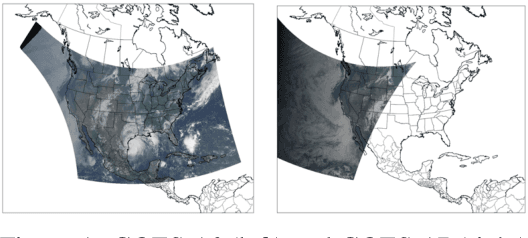A Moment in the Sun: Solar Nowcasting from Multispectral Satellite Data using Self-Supervised Learning
Paper and Code
Dec 28, 2021



Solar energy is now the cheapest form of electricity in history. Unfortunately, significantly increasing the grid's fraction of solar energy remains challenging due to its variability, which makes balancing electricity's supply and demand more difficult. While thermal generators' ramp rate -- the maximum rate that they can change their output -- is finite, solar's ramp rate is essentially infinite. Thus, accurate near-term solar forecasting, or nowcasting, is important to provide advance warning to adjust thermal generator output in response to solar variations to ensure a balanced supply and demand. To address the problem, this paper develops a general model for solar nowcasting from abundant and readily available multispectral satellite data using self-supervised learning. Specifically, we develop deep auto-regressive models using convolutional neural networks (CNN) and long short-term memory networks (LSTM) that are globally trained across multiple locations to predict raw future observations of the spatio-temporal data collected by the recently launched GOES-R series of satellites. Our model estimates a location's future solar irradiance based on satellite observations, which we feed to a regression model trained on smaller site-specific solar data to provide near-term solar photovoltaic (PV) forecasts that account for site-specific characteristics. We evaluate our approach for different coverage areas and forecast horizons across 25 solar sites and show that our approach yields errors close to that of a model using ground-truth observations.
 Add to Chrome
Add to Chrome Add to Firefox
Add to Firefox Add to Edge
Add to Edge